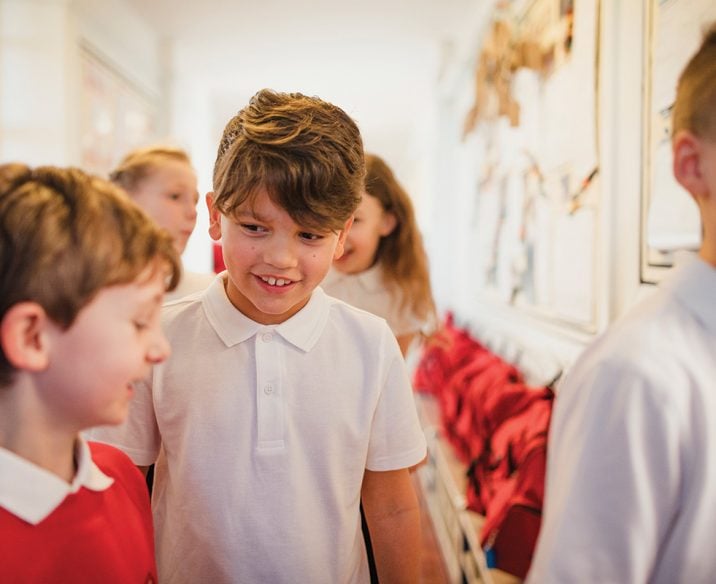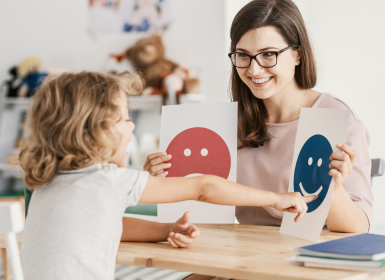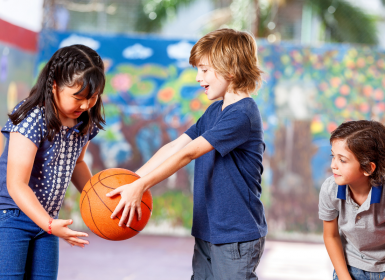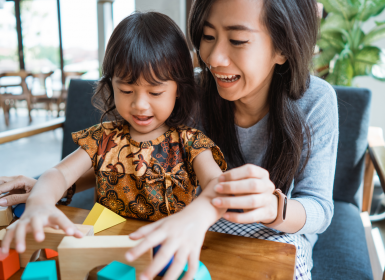
We all know that making new friends and forming new bonds with others can be challenging. For kids, it can sometimes feel like the hardest thing in the world. Helping to improve your child’s social skills can make the process a whole lot easier.
You can help support your little one to develop social skills by encouraging and working with them to understand the importance of socialising.
Sometimes, we don’t know where to begin or we’re looking for new ways to help our children out – so take a look at our list of ways to improve your child’s social skills and try some of them out in your own time.
Encourage Eye Contact
This tip will go a long way to helping improve your child’s social skills. Eye contact sounds like a very simple thing but it is a very important skill to have. It shows that we’re listening to a conversation and that we’re fully engaged in the social situation.
When talking to people, encourage your kids to maintain eye contact and practice talking to others while looking into their eyes. It will make them feel more confident and heard while they also improve their own listening skills.
Learn to Ask Questions
Questions are the best way to learn. Encourage your child to ask questions of yourself and others. Allow them to jump on the phone and call relatives and friends for a Q and A session.
Having a conversation with someone and asking them questions opens a child to new types of experiences and connections. Suggest using a mixture of open ended questions to promote conversation as well as a simple yes/no answers.
Teach Them Emotions
Knowledge is power! Sharing knowledge about emotions and emotional health is the best way to improve your child’s social skills.
To our children we’re not simply parents, we’re role models, teachers, coaches and leaders. We can show our children the difference between positive emotions and negative ones by simply teaching them.
Try not to cross emotions. Hold a straight face when you’re talking to them about doing something wrong and use your words to explain how you’re feeling. Share your emotions during different situations. Explain that you can cry when you’re happy as well as when you’re sad.
Practice With Role Playing
Children love to play, so why not bring a little social skills practice to playtime? Empathy tasks, interviewing games and asking “how does it make you feel?” are all simple yet effective ways of teaching social skills.
Empathy tasks – like pretending your child is someone famous while you interview them – is a great way of putting your child in someone else’s shoes.
Children learn while playing, so why not involve some dress ups, toys or maybe a tea party as a way to improve your child’s social skills? There is always more to learn once you get dressed up as a princess, a pirate or a clown!
Know Your Child’s Limits
Every child socialises in a different way. An introverted child might tire quickly when in busy and loud social scenes, whereas an extraverted child might thrive in them but dislike quieter or intimate spaces. Don’t force your child into social scenes that they’re not comfortable in, give them chances to learn at their own page, in their own time. After all, we crawl before we can run, so these baby steps into bigger social situations are important.
Prepare Them for Higher Level Social Skills
Higher level social skills, like negotiation, conflict resolution, assertiveness, non-verbal communication and public speaking will become more important as your child gets older, so it is important to practice them from a young age.
Encourage your child to tell stories and speak in front of groups of relatives and friends, get them to use body language when communicating, force a negotiation with them when considering buying a treat or toy and make them argue their point across. These are all skills we use in the workplace so practicing them as a child will help them as they get older.
Be a Good Role Model
This is often understated and forgotten but it is vital for you to be a good social role model. To improving your child’s social skills, it can be as simple as acting responsibly, listening, showing them good communication skills and being respectful.
Explain your emotions to them, use eye contact, apologise for mistakes and use empathy. These are all ways that you can be a great role model.




